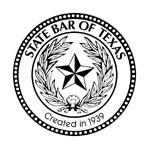Expunction of Criminal Records
Experienced
Trusted
Respected
Practice Areas
An Expunction is a valuable tool which enables a person with a criminal history to have his reputation restored by having the arrest or charge legally removed from his record. This is a very important step in protecting a person’s reputation and future.
VITAL INFORMATION YOU NEED TO KNOW ABOUT CRIMINAL RECORDS
- If you have ever been arrested, even if you were not convicted, even if happened 20 years ago, even if your case was dismissed decades ago, even if you were never charged, the ARREST itself remains on your public criminal record and is almost immediately available for people to view on the internet for the rest of your life.
- You have the Constitutional right to the “presumption of innocence” in a courtroom. But although you are innocent until proven guilty in a court of law, in the court of public opinion, most people unfortunately assume that an arrest alone is the equivalent of a guilty verdict.
- Society is full of “bottom feeders,” (as I call them) – private companies who purchase criminal histories from governmental agencies and then post embarrassing mug shots of the people arrested onto public websites. These bottom feeders probably assume they are doing something noble by informing the community of criminals, but the problem is that MANY people who are arrested and posted in a mug shot ARE NEVER FOUND GUILTY OF A CRIME.
- The arrest remains on your criminal record until you have it legally expunged at an expunction proceeding. When the Texas Department of Public Safety receives an expunction order, then they have a duty to notify any private agency that purchases criminal histories from the department to expunge their records.
CAN I GET MY CRIMINAL RECORD EXPUNGED?
 The law allows for expunctions under certain circumstances. In most situations, a District Court has jurisdiction over expunctions. If you have had a criminal case dismissed or no-billed by the grand jury, or if you were never charged or found “not guilty”, you should explore whether your case is eligible for expunction.
The law allows for expunctions under certain circumstances. In most situations, a District Court has jurisdiction over expunctions. If you have had a criminal case dismissed or no-billed by the grand jury, or if you were never charged or found “not guilty”, you should explore whether your case is eligible for expunction.
Many different factors influence whether a criminal record can be expunged. As a rule, you can have your record expunged in Texas if:
- You were arrested but not charged with a crime
- You went to trial and the judge or jury found you not guilty
- You were convicted but later acquitted by the court of criminal appeals
- You were convicted but later pardoned
- Your case was dismissed prior to trial
- You completed a pre-trial diversion program offered by the court and your case was dismissed
- You completed a deferred probation for most Class C misdemeanors
These are general guidelines for expunction eligibility. Every case needs to be evaluated and investigated individually.
WHY DO I NEED TO HAVE MY RECORD EXPUNGED?
Our society continues to make more information available online. This is true for criminal records as well. Criminal records are being used by employers, schools, apartment complexes and other organizations for application purposes. Records that used to be difficult and cumbersome to obtain are now available within minutes. These records are used for background checks routinely.
If you have something on your record from your past – no matter how long ago – possible employers, landlords, academic, financial, and religious institutions, etc. can see it. For example, let’s say you were arrested 10 years ago for theft but were never charged. You would think that because you were never charged, the arrest wouldn’t show up on your criminal record, right? Wrong. Take the steps NOW to get your record expunged so your arrest will no longer show up when someone runs your background.
RECENT CHANGES IN CHAPTER 55 OF THE CODE OF CRIMINAL PROCEDURE
Expunction law is complex and can sometimes be confusing. Recent changes in the Code of Criminal Procedure Chapter 55, the expunction statutes, are filtering down to my clients. Some of these changes are positive and some have created some new challenges.
One area that the Legislature addressed was the issue involving cases where people had been arrested for an offense, but then the case was never prosecuted. In this situation, a person had been arrested and the arrest record and book-in photo were readily available for anyone to see, but nothing was happening on the case. This issue has been addressed by what we criminal defense lawyers refer to as a “partial expunction”. Chapter 55.01 (A) states: relating to waiting periods
“regardless of whether any statute of limitations exists for the offense and whether any limitations period for the offense has expired, an indictment or information charging the person with the commission of a misdemeanor offense based on the person’s arrest or charging the person with the commission of any felony offense arising out of the same transaction for which the person was arrested:
(i) has not been presented against the person at any time following the arrest, and:
(a) at least 180 days have elapsed from the date of arrest if the arrest for which the expunction was sought was for an offense punishable as a Class C misdemeanor and if there was no felony charge arising out of the same transaction for which the person was arrested;
(b) at least one year has elapsed from the date of arrest if the arrest for which the expunction was sought was for an offense punishable as a Class B or A misdemeanor and if there was no felony charge arising out of the same transaction for which the person was arrested;
(c) at least three years have elapsed from the date of arrest if the arrest for which the expunction was sought was for an offense punishable as a felony or if there was a felony charge arising out of the same transaction for which the person was arrested”;
In essence, this part of the statute allows (in most cases) the client to file for and receive an expunction order on the arrest without having to wait for the entire statute of limitations period when it appears that formal charges are not going to be brought by the State. However, the State does not have to destroy their records; they may continue to investigate and/or use their records later if they choose to prosecute in the future. Under this statute, the record of your arrest is expunged from public view and removed from databases the public may have access to. Additionally, you would be able to legally deny the arrest. Once the Statue of Limitations period has run, you should then able to file for a complete and full expunction.
Another specific area that the legislature has addressed allowing for expunctions without waiting the entire Statute of Limitations period is when a person has completed a pretrial intervention program authorized under Section 76.011 of the Government Code. Pretrial intervention and diversion programs are sometimes used by the State and Defense to help rehabilitate a person without requiring the person to be on a legal probation. There are several different types of pretrial diversion programs that Tarrant County and surrounding counties use that would fall under the type of intervention program reference in Section 76.011 of the Government Code. Knowledge of these programs and options is a must for a good criminal defense attorney. They are sometimes the best option for a client mentally, physically, and legally. Furthermore, they often provide the quickest way to have a client in a position to have the case expunged.
HOW DO I GET MY RECORD EXPUNGED?
Hiring a criminal defense attorney is important if you want to get your record expunged. If you chose to hire the Law Office of Stephen D. Handy, you will have peace of mind knowing that we will act quickly and effectively to clear your record. Call my office today, and I will help you determine if you are eligible for an expunction. Together, we will work through the process.
WHAT IF I’M NOT ELIGIBLE FOR AN EXPUNCTION? IS THERE ANY OTHER OPTION TO CLEAR MY RECORD?
In Texas, you may be able to have your record “expunged” as we have discussed, or in certain circumstances, you may petition to have your record sealed (“non-disclosed”). Due to the nature of the offense, charge, or conviction, an expunction may not be an option. However, it may be possible to obtain an order of nondisclosure if you have successfully completed deferred adjudication probation or if convicted of certain misdemeanor offenses and you also have no other criminal record.
WHAT IS AN ORDER OF NONDISCLOSURE AND AM I ELIGIBLE?
An expunction removes the offense from your record as if the offense never happened. An order of nondisclosure will “seal” the records from the public, and they cannot be released or accessed by most private parties. However, your records will remain available to some government agencies and may be admissible in certain court actions. If your records are “sealed”, the general public would not be able to see the prior case, and you can deny the allegations of arrest.
If you have completed deferred adjudication for any of the following criminal offenses and have waited the appropriate period of time, you may be eligible to file for an order of nondisclosure:
- Most felonies – 5 years from date of discharge and dismissal
- The following misdemeanors – 2 years from date of discharge and dismissal
• Abuse of corpse
• Advertising for placement of child
• Aiding suicide
• Assault
• Bigamy
• Cruelty to animals
• Deadly conduct
• Destruction of flag
• Discharge of firearm
• Disorderly conduct
• Disrupting meeting or procession
• Dogfighting
• False alarm or report
• Harassment
• Harboring runaway child
• Hoax bombs
• Indecent exposure
• Interference with emergency telephone call
• Leaving a child in a vehicle
• Making a firearm accessible to a child.
• Obstructing highway or other passageways
• Possession, manufacture, transport, repair or sale of switchblade knife or knuckles
• Public lewdness
• Riot
• Silent or abusive calls to 9-1-1 service
• Terroristic threat
• Unlawful carrying of handgun by license holder
• Unlawful carrying weapons
• Unlawful possession of firearm
• Unlawful restraint
• Unlawful transfer of certain weapons
III. Most misdemeanors – may file immediately upon discharge and dismissal.
- Some Misdemeanor Convictions – usually a two-year wait after the sentence is completed or the probation has expired.
- Driving While Intoxicated – A DWI may now be non-disclosed if the DWI did not result in an accident involving another person and there was not a plea to a DWI >.15. Furthermore, a person seeking non-disclosure of a DWI case must not have had any other non-traffic offenses on their criminal history.
WHY CALL STEPHEN HANDY?
Expunctions are a valuable tool that far too many people don’t know about and don’t utilize to their advantage. I’ve practiced criminal defense law for over 20 years and have seen the frustration and regret that comes with waiting to file an expunction or order of non-disclosure. Don’t wait until you have been denied a job, a home, a loan, or another opportunity to try and have your record cleared. Call my office today to see if you are eligible for an expunction or an order of non-disclosure. These options are in place so that you do not have to spend a lifetime suffering the negative consequences of past mistakes! Let me help you with a fresh start!









